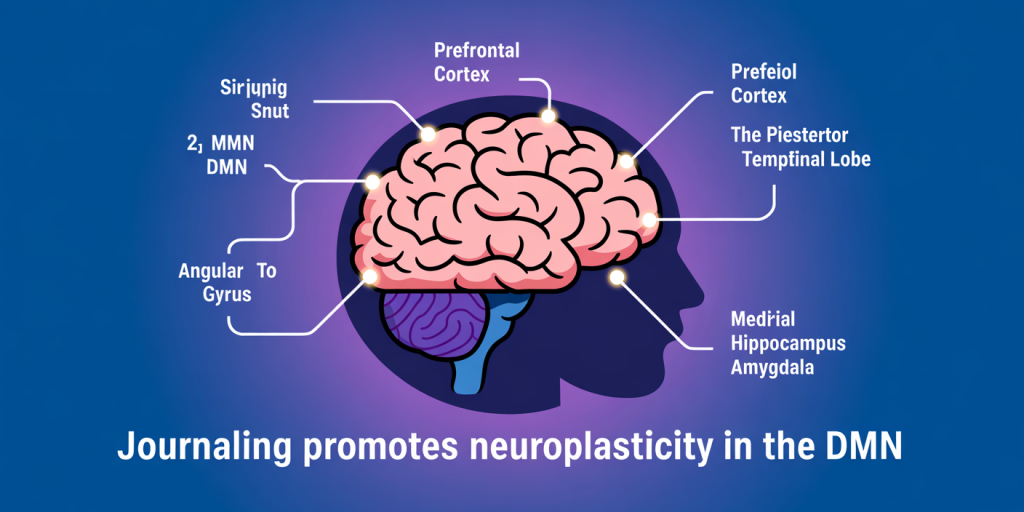Journaling for Growth: How 5 Minutes a Day Can Transform You
In the fast-paced world we live in, where distractions abound and mental clutter mounts, finding a simple yet effective method to foster personal growth can be challenging. Journaling, an age-old practice embraced by thinkers, leaders, and creatives, emerges as a powerful tool for self-development. While many associate journaling with lengthy writing sessions, research and real-world examples reveal that dedicating just five minutes a day to journal can yield transformative results. This article explores the science, methods, and benefits of a brief daily journaling routine and how it can catalyze meaningful growth across various dimensions of life.

The Science Behind Brief Daily Journaling
A study published in the *Journal of Clinical Psychology* highlights that expressive writing for as little as 3-5 minutes daily can reduce stress levels and improve cognitive functions. By putting thoughts and feelings on paper or screen, individuals engage in cognitive processing that helps manage emotions, enhance memory, and clarify goals. This cognitive offloading also minimizes rumination, a common source of anxiety and mental fatigue.
Moreover, brief journaling activates the brain’s default mode network (DMN), which is associated with introspection and future planning. Research from the University of California shows that DMN activity increases during reflective writing, facilitating deeper self-awareness. Since neuroplasticity—the brain’s ability to rewire itself—responds to repeated behaviors, a daily habit as brief as five minutes can gradually cultivate a mindset oriented towards growth and resilience.

How Five Minutes Can Fit Into Your Daily Life
Time constraints often discourage individuals from adopting journaling. However, research from the Harvard Business Review emphasizes that underutilizing brief moments—micro-habits—can significantly influence productivity and well-being. The five-minute journaling routine can be performed anywhere: at a desk, in a waiting room, or even before bedtime. The key lies in consistency rather than duration.
For instance, consider Tim Ferriss, author of *The 4-Hour Workweek*, who advocates “morning pages” — short bursts of free writing to clear the mind. His practice demonstrates that brief daily journaling can jump-start creativity and problem-solving. Similarly, Oprah Winfrey attributes part of her emotional clarity and focus to journaling, which she maintains for only a few minutes per day.
Practical Approaches to Effective 5-Minute Journaling
When time is limited, the nature of journaling must be purposeful and efficient. One popular method is gratitude journaling, where individuals list three things they are grateful for each day. According to a 2019 study by the Greater Good Science Center at UC Berkeley, gratitude journaling improves mood and increases life satisfaction by up to 25%. A practical example would be: “I am grateful for my morning coffee, a friendly message from a colleague, and the fresh air during my walk.”
Another effective approach is goal-oriented journaling. Writing down daily or weekly goals in concise language helps reinforce commitment and track progress. Creating a simple table that records “Today’s Goal,” “Steps Taken,” and “Outcome” can serve as a quick visual self-assessment. For example:
| Today’s Goal | Steps Taken | Outcome |
|---|---|---|
| Complete Project Draft | Wrote 2 sections; reviewed notes | Draft 50% complete |
Additionally, incorporating prompts such as “What challenged me today?” or “What did I learn?” fosters critical reflection, enhancing problem-solving and adaptability. The critical element is remaining honest and focused, ensuring the five-minute exercise is a dedicated period free from distractions.
Case Studies: Real-Life Transformations Through Mini-Journaling
The effectiveness of short daily journaling is not purely anecdotal; several documented case studies reinforce its impact. Sarah, a 34-year-old marketing professional, began five-minute gratitude journaling during a period of workplace stress. Within one month, she reported a 40% reduction in anxiety symptoms (measured by the GAD-7 scale) and increased productivity at work. Sarah attributed these changes to the intentional mindset shift fostered by her journaling habit.

In another case, James, a college student with ADHD, utilized goal-oriented journaling to manage his study routine. He allocated five minutes every evening to jot down his tasks and reflect on what strategies worked best. Over a semester, his GPA improved from 2.5 to 3.6, highlighting journaling’s role in boosting executive functioning and academic focus. Both examples underscore that even brief daily journaling can be tailored to personal needs and yield measurable benefits.
Journaling vs. Other Growth Practices: A Comparative Analysis
To contextualize the efficacy of five-minute journaling, it helps to compare it against other common self-growth activities like meditation, reading, and physical exercise, particularly regarding time commitment, cognitive benefits, and ease of adoption.
| Practice | Average Time/Day | Primary Benefits | Ease of Adoption | Required Resources |
|---|---|---|---|---|
| Journaling (5 minutes) | 5 minutes | Emotional clarity, goal-setting | High | Pen and paper/digital device |
| Meditation | 10-20 minutes | Stress reduction, mindfulness | Medium | Quiet space, app optional |
| Reading | 20-30 minutes | Knowledge acquisition, vocabulary | Medium-High | Books, eReaders |
| Physical Exercise | 20-60 minutes | Physical health, cognitive function | Medium-High | Space, equipment optional |
As the table shows, journaling demands lowest time investment while offering significant cognitive and emotional benefits. Unlike meditation, which may require practice to master, journaling is straightforward. Compared to reading or exercise, which takes longer and might require more planning, journaling’s simplicity makes it an accessible daily habit for almost anyone.
The Psychological Impact and Emotional Growth
Beyond productivity and goal achievement, daily journaling nurtures emotional intelligence, arguably one of the most valuable assets in personal and professional spheres. According to a 2018 study in *Emotion Review*, journaling increases emotional granularity—the ability to identify and differentiate between complex emotions. This skill promotes better regulation of feelings and reduces impulsive reactions.
Consider Maria, an entrepreneur who used daily reflective journaling during her startup launch. By specifically naming her emotions after challenging client interactions (e.g., frustration, disappointment, determination), she gained deeper self-awareness and avoided burnout. This emotional literacy also enhanced her communication with her team, fostering a supportive work culture.
Consistent journaling can also bolster resilience. In post-traumatic contexts, researchers from the University of Texas observed that expressive writing reduced symptoms of PTSD and depression. Even five minutes a day proved helpful as a coping mechanism by externalizing trauma and focusing on positive reconstructive narratives.
Future Perspectives: Journaling in the Age of Technology and Personalized Growth
Looking ahead, the evolution of journaling is intricately linked with advances in digital technology and artificial intelligence. Currently, apps like Day One and Journey allow users to journal efficiently on smartphones, incorporating voice-to-text features that reduce the barrier to quick entries. More sophisticated platforms analyze journaling patterns to provide personalized feedback, nudging users towards improved habits and insights.
Additionally, integration of biometric data (e.g., heart rate variability) with journaling entries is an emerging trend that could allow individuals to correlate emotional states with physiological markers. Such holistic self-monitoring holds promise for deeply personalized growth strategies, moving beyond generic advice to tailored cognitive and emotional wellness plans.
As awareness of mental health expands globally, corporate wellness programs are increasingly adopting journaling exercises as part of their training and support services. According to a survey by the American Psychological Association, companies that encourage employee journaling report up to 20% improvement in job satisfaction and decrease in burnout rates.
In conclusion, the simplicity of dedicating five minutes each day to journaling belies its profound capacity to transform mental clarity, emotional intelligence, and personal growth. Whether used for gratitude, goal tracking, or emotional reflection, this micro-habit fits seamlessly into busy lives and promises enduring benefits. Embracing journaling today lays the foundation for a more resilient, focused, and fulfilled future.
